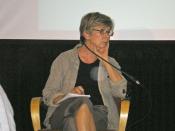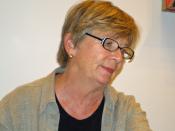Social, economic, and political inequalities or differences all have been a part of society since the development of civilizations. Jean-Jacques Rousseau, an unconventional 18th century philiospher and the author of The Discourse on the Origin of Inequaltiy, believed that private property and inequality are directly linked. He believed that inequality formed with the creation of society. Barbara Ehrenreich, the author of Nickel and Dimed: On (Not) Getting By in America, also believes that the societal structure of the United States is divided into the haves and have-nots. She believes that there are distinct class lines between Americans. However, David Brooks, the author of "One Nation, Slightly Divisible," believes that one American society exists even though America may contain people who have economic, political, and cultural differences. All of these authors offer many great ideas on inequality or differences in society and they are all correct in some sense. There will always be differences of all kinds among people but this does not mean society is inherently unequal.
Societies depend on the differences of its members in order to form a reasonable and fair social order. Although members of a society may have economic disproportion, cultural diversity, and differences in political views all of its members still belong to one single society.
Jean-Jacques Rousseau, one of the great philosophers of the Enlightenment, was born in Geneva in 1712 and later moved to Paris. In his Discourse on the Origin of Inequality, Rousseau emphasized that the natural condition of humans is disguised by the corruptive influence of society. Savage human beings, like animals of any species, are well adapted by nature to their surroundings in the natural world. Their lives are wholly guided by their feelings of pity and love for each other, and inequalities do not arise. As the...


